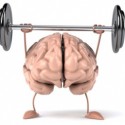In the 1980s a neurophysiologist called Benjamin Libet[1], working in The University of California in San Francisco, set out to determine how and when conscious choice was manifest electrically in a neurological pathway. So paraphrasing the research question: “When deciding to carry out any activity, when does ‘will’ show up?”
He began by asking a group of volunteers to flick or flex their wrist randomly whilst their brain waves were being recorded by an EEG machine, a relatively primitive way of measuring cortical brain activity compared to more modern techniques.
The volunteers were also asked to identify exactly when they were consciously aware of the decision to initiate the movement of their wrist by using a spot of light moving around an oscilloscope at 25 times the speed of the second hand on a clock.
It appeared that the conscious decision to act occurred on average between 100-200 milliseconds before the movement was carried out.
What was more astonishing was that this was preceded by a burst of electrical activity signalling an unconscious ‘readiness’ to act 300 milliseconds ahead of the conscious ‘decision’ to act.
This now infamous research and subsequent experiments raised the question about whether our actions are nothing more than the conditioned responses to stimuli and outside our conscious control.
We now know that bottom-up sub-cortical habit circuits are considerably faster the slower top-down Prefrontal Cortex (PFC) directed ‘deliberate’ pathways. This is partly due to the former being ‘primed’ by cues or triggers. It is likely that the subjects in Libet’s original study were priming their habit circuits by repeating the task several times.
We also know that bottom-up preconditioned survival reactions, such as ‘flight or fight’, appear instantaneously in response to certain triggers. Think about walking home alone late at night in the dark and hearing the sound of footsteps behind you. Your steps, heart rate and breathing may all quicken automatically.
These same physical manifestations also accompany many anxiety states, including those associated with other disorders such as OCD, depression or addictions. These reactions, often accompanied by a sense of loss of control, may be habitually ‘over-learned’ dysfunctional responses.
Can any of these reactions, including primitive preconditioned responses, be unlearned or voluntarily suppressed?
The answer appears to be yes. In a book entitled Destructive Emotions, Daniel Goleman describes what he calls a “spectacular accomplishment” whereby the subject, whilst being monitored in a functional MRI scanner, was able to suppress the startle reflex.
Most of us are aware that this preconditioned reflex, a bottom-up brain stem response to noise, observed first in infancy, and persisting in a modified form throughout life, is almost impossible to suppress voluntarily.
The subject, Lama Öser, a European-born Buddhist monk and an advanced meditator, used different types of meditation to suppress the effects of a sudden loud sound, like a pistol being fired next to his ear, either on facial muscular movement, or on his heart rate and blood pressure, while his brain was being scanned.
Most of us would not be capable of doing this without similar extensive training. But we are not as interested in suppressing primitive preconditioned reflexes as in discovering how to change routines, or patterns of response, to various cues and triggers, which we have learnt from childhood onwards.
So what about Free Won’t? Although Libet’s experiments showed that there are roughly about 150 milliseconds between consciously making a decision to act and carrying it out, he also pointed out that this was long enough for us to veto the decision to act. His conclusion: Conscious ‘will’ could block the process so that no act occurs.
In other words, at any time we are faced with an urge to act in response to a given stimulus, and even though the brain may be primed to respond in a particular way, before we reach that point of conscious choice, we still have the ability to veto this reaction: hence the concept of ‘Free won’t’.
So if ‘free won’t’ gives us the power to veto conditioned responses why doesn’t just telling yourself to ‘stop’ work very often? Because some habits can be very stubborn and, like other animals, humans don’t forget deeply conditioned behaviours. This could apply to any habitual routines such as texting, gambling, OCD and addiction to drugs, alcohol or overeating.
So if saying STOP (Or Won’t) is not necessarily effective when attempting to change a habit, what else will help?
The answer is that the STOP needs to be bonded to a new action/routine/behaviour which is carried out immediately after the (known) cue/trigger and before the existing habit pathway has been activated. This has been called the ‘Golden Rule’ of habit change and hence the Habit for Habit process, or H4H for short.
Although it takes mental effort to make the change, in my experience this doesn’t have to be hard work. It just needs to be consistent.
Although the H4H process will help you strengthen you will power ‘muscle’, this is a limited resource. So my advice is not to make willpower the main determinant of changing habitual responses.
Rather we will show you how to massage your PFC executive function, be good to the ‘boss’, strengthen the ‘brakes’, and this will help prime the bottom-up brain circuits for potential change.
So believe in Free Will. If you freely and wilfully commit to making a change, essentially by learning how to use your deliberate top-down PFC executive function, then you can succeed in getting back in control of your habitual responses, no matter how ingrained they are.
[1] Libet in Libet, Freeman and Sutherland. Journal of Consciousness Studies. Vol 6 1999



